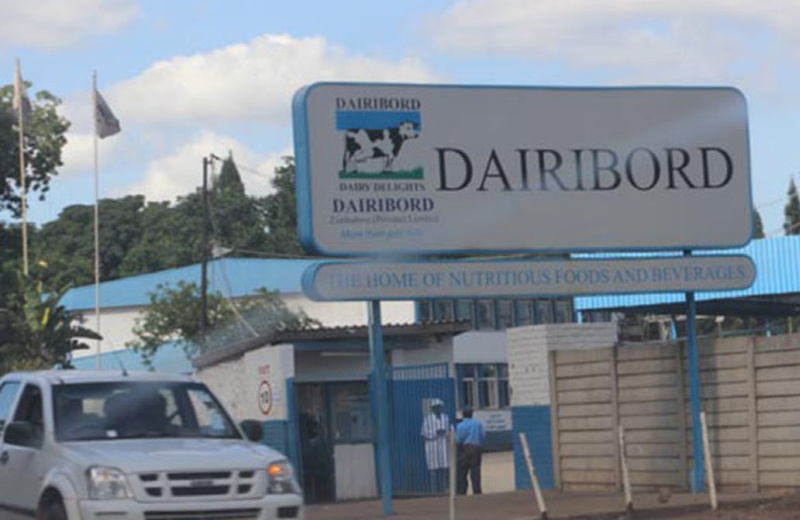Building Zim knowledge, innovation start-up communities for agriculture
The last article was about Building Zim Knowledge and Innovation Start-Up Communities in which it was explained that state universities should be the anchor institutions for the communities as they are the knowledge production institutions which is the foundation of the start-up communities.
A comparison was also made between communities of practice and start-up communities. The development of thematic areas for the start-up community then establishes a shared domain of interest in that particular start-up community.
This article is about the knowledge and innovation start-up community in the domain of agricultural innovations.
The following will be discussed: establishing the agricultural innovations value chain, developing start-up partnerships for agricultural innovations, developing innovation competitions for the start-ups, starting new companies and training a new generation of entrepreneurs.
Establishing the Agricultural Innovations Value Chain
The start-up community should ensure that the agricultural value chain is established at the onset, to ensure that innovations to be developed do not leave out other elements of the value chain.
The agricultural innovations value chain should include innovations in crop science, animal science, soil science, seed science, forestry science, agricultural engineering, and last but not least agribusiness innovations.
The goal of the innovations is to develop capacity at a national level and then developing to the regional level that is the African context to enable the start-ups to enter the African Continental Free Trade Area.
Crop science is the study of agricultural issues and challenges including resource use consistent with sustainable production of food, feed and fuel, production, processing and marketing of high quality and non-food products.
Crop science studies are ways of improving crops and agricultural productivity while effectively managing pests.
Knowledge of crop science is fundamental to then identifying what innovations are necessary to capacitate the nation in meeting the requirements for food and other agricultural products.
Animal science is concerned with the science and business of producing domestic livestock species including but not limited to beef cattle, dairy cattle, horses, poultry, sheep and swine.
An animal scientist applies the principle of biological, physical and social sciences to the problems associated with livestock production and management. Animal science is also concerned with foods of animal origin, meat, dairy foods and eggs.
The food industry is one of the largest and most important industries in Zimbabwe.
Animal science innovations will enable the nation to develop solutions to manage the issue of growing the national herd to meet national and export demand as well as the animal disease challenges affecting the livestock.
Soil science is the study of soil as a natural resource on the surface of the earth including soil formation, classification and mapping physical, chemical, biological and fertility properties of soils and these properties in relation to the use and management of soils.
Innovative research in soil science is fundamental in overcoming crop shortages as the world’s population continues to increase.
Food security is one of the great global challenges of the 21st century and soils play a central and critical role in delivery of enough food and fuel crops to sustain increasing global population.
Soils are also critical for ensuring the quality of our food, particularly in the face of climate change.
So, innovations in soils are there to ensure that the country is proactive in managing the soils for effective agricultural use.
Seed science is the study of the structure and development of seed from the moment of fertilisation of the egg cell on the maternal plant until the formation of new plant from the seed. Seed sciences and technologies process, test, and conserve food and agricultural seeds that farmers plant and the food plants that people and livestock eat.
The drought that this nation has faced this season could have been managed effectively through use of seed varieties which were appropriate for the climate.
Even the awareness that had been created about the impending drought was not effective as the nation did not have the appropriate seed varieties for the short rainy season. Seed science is very important to ensure that appropriate seed varieties are to be developed for the right climate and conditions.
Forestry is the science and craft of creating, managing, planting, using, conserving and repairing forests and woodlands for human and environmental benefits.
Forest resources are those products, uses and values associated with forests, including recreation, aesthetics, fish forage, soil, timber, wilderness and wildlife. Forestry innovations are required to ensure that the forests are consistently replanted and for solving problems which occur in that sector.
Agricultural engineering, also known as agricultural and bio systems engineering, is the field of study and application of engineering science and designs principles for agriculture purposes, combining the various disciples of mechanical, civil, electrical, food science, environmental, software and chemical engineering to improve the efficiency of farms and agribusiness enterprises as well as ensure the sustainability of natural and renewable resources.
It is about solving agricultural problems concerning power supplies, the efficiency of the machinery, the use of structures and facilities, pollution and environmental issues and the storage and processing of agricultural products.
Agricultural Engineering has many sub disciplines which include machinery, structures, surveying, aquaculture irrigation, pesticides and soil management.
Irrigation is very important to ensure that the country does not rely solely on rain to feed the population.
The past rainy season is testament to that fact.
A news article stated that out of the dam capacity that Zimbabwe has, only 10 percent is under irrigation.
This implies that the country is not utilising what it has to reduce over reliance on rains for agriculture.
So agricultural engineering Innovations are critical so that the country develops national capacity for mechanization irrigation and other important structure required for agriculture.
Agribusiness is the term used to describe the whole range of activities and enterprises involved in the production, processing, distribution and consumption of food and agricultural products.
It covers not only farming, but also input supply, agro-processing, marketing, trade, retail, and services.
Innovation and entrepreneurship are essential for agribusiness to adapt to changing consumer preferences, environmental conditions, technological advancement and competitive pressure.
Globally, 30 percent of the food produced is estimated to be lost along the process in the agricultural supply chain.
Agribusiness innovations solve problems of food supply chains, food wastage and delivery and come up with solutions for safe and nutritious food that is of high quality.
Agribusiness Innovations also develop solutions for optimising food processing procedures, streamlining supply chains and linking farmers directly to the market among other things.
Developing the start-up community partnerships for agricultural innovations
The start-up community can develop partnerships that will bring together all the different actors critical to the development of start-ups.
These partners should include the Ministry of Agriculture, the Industry Regulator that is the Agricultural Marketing Authority, the Industry Associations, the relevant research Institutes, the financial Institutions with a specific focus on Agricultural finance, such as AFC Holdings and businesses in the Agricultural Sector.
These actors can be source of information on all the pertinent issues happening in the Agricultural sector.
These partners assist the Start-Up community in developing the relevant solutions to address challenges faced across the Agricultural value chain.
Developing innovation competitions for start-ups
In partnership with the relevant research institutes, the start-up community can carry out research activities to identify challenges requiring innovative solutions across the Agricultural Value Chain. This information will assist in developing Innovation Competitions/Challenge looking for Start-Ups who can develop business solutions to address the Innovation Challenge.
Starting new companies and developing a new generation of entrepreneurs
An Academy with a specialist focus on all the value chain activities, as well as entrepreneurship training can be established, to ensure the continuous production of new entrepreneurs is ongoing. The new generation of entrepreneurs focus on solving challenges faced in the Agricultural sector by providing innovative solutions that can be scaled across the African continent.
Nokuthula Moyo-Muparuri is a lecturer at the Midlands State University in the Faculty of Business Sciences. She is also the Founder of the Institute of Applied Entrepreneurship. The mission of the Institute is Start-Up/Innovation Skills Development and Start-Up/Innovation Ecosystem Development. The Institute has established a Zim Start-Up Academy providing courses on Entrepreneurship and Innovation, Small and Family Business Management and Innovation/Start-Up Ecosystems Development. Those interested can contact the Institute on +263718747621-ebusinessweekly










